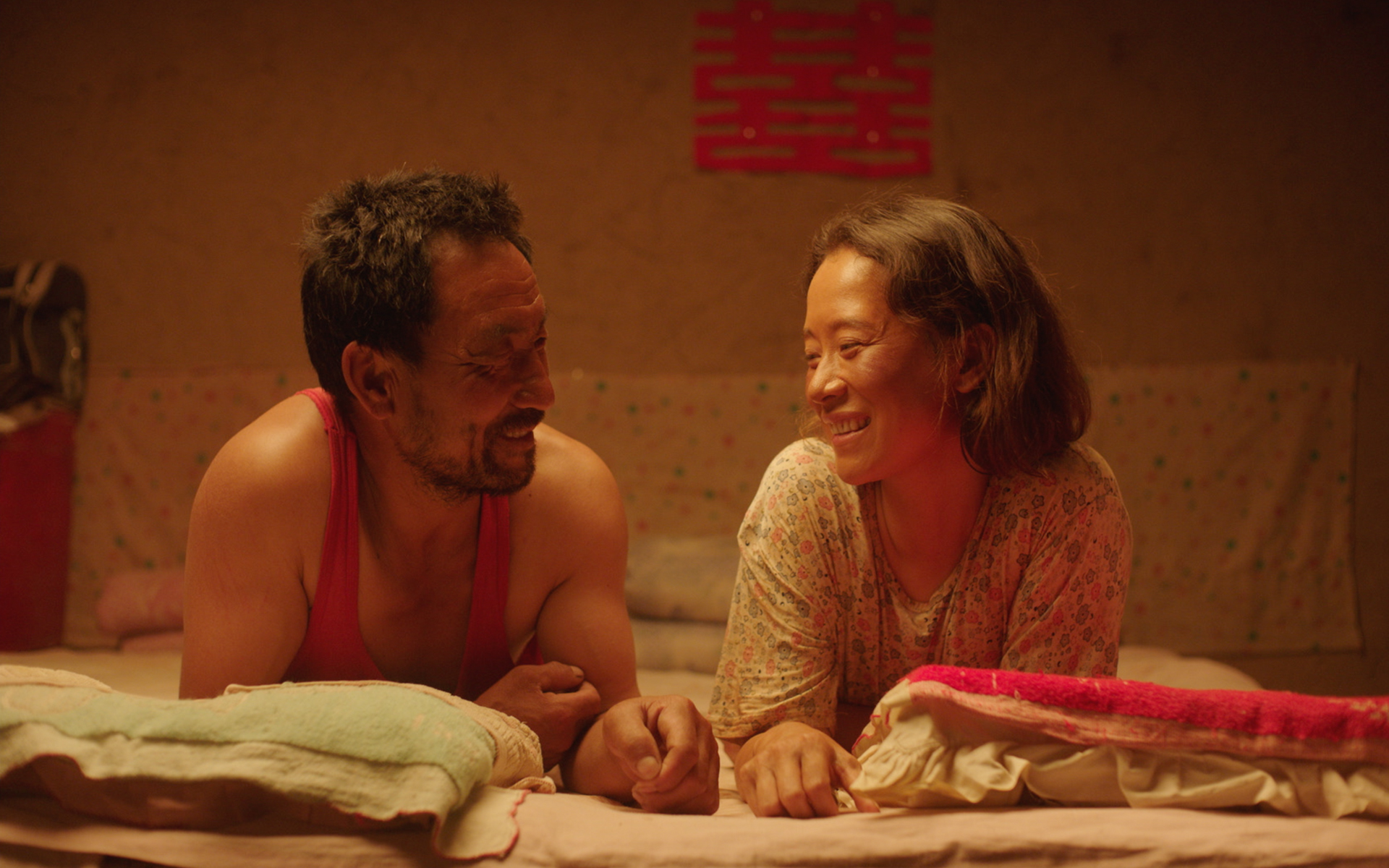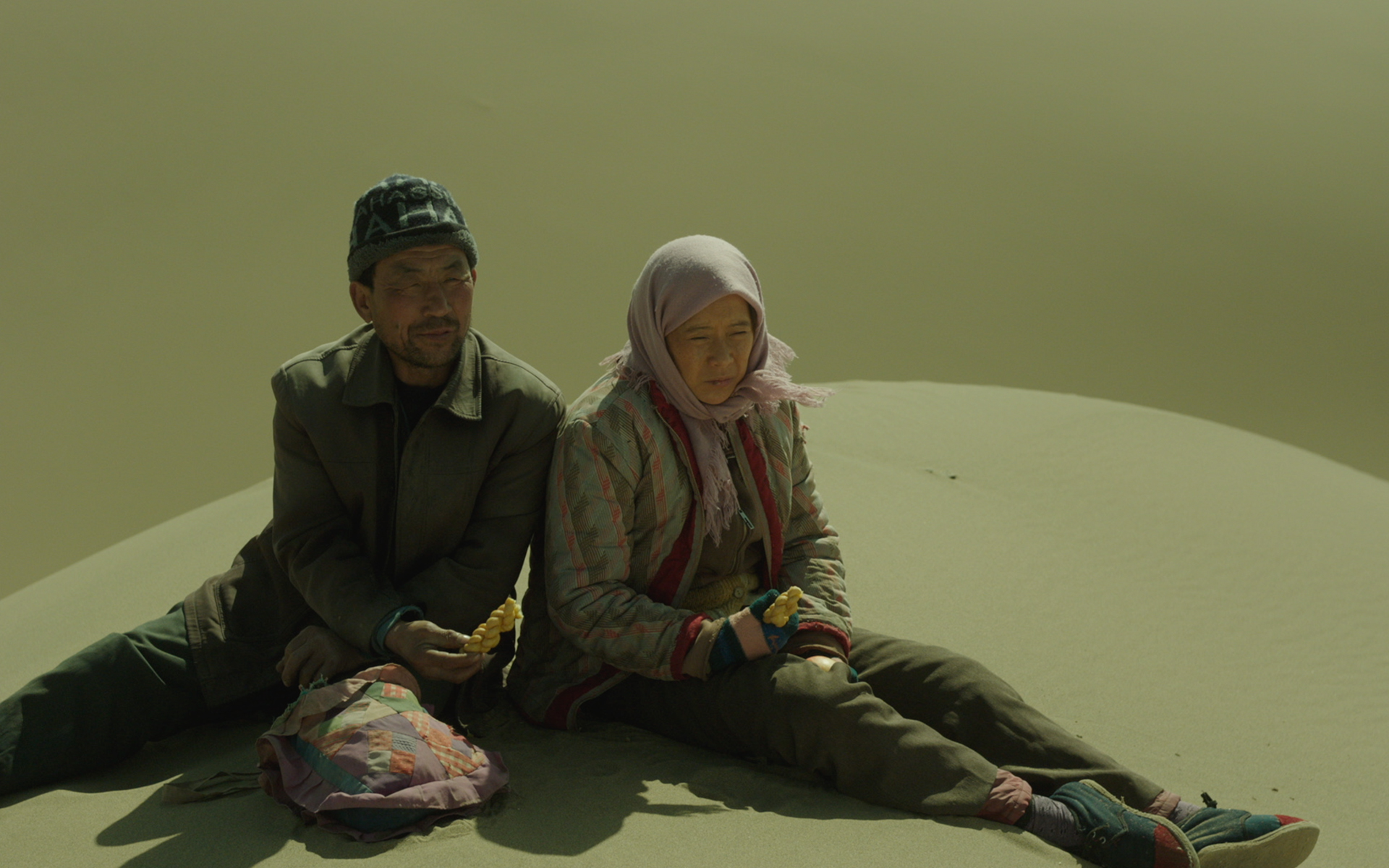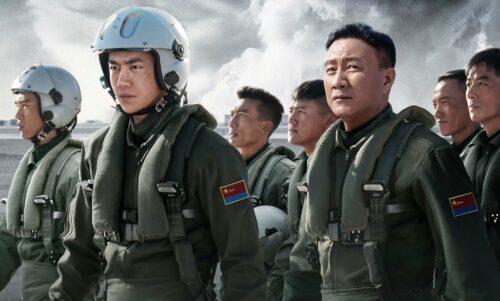‘Return to Dust’: A love story in rural China
An interview with director Li Ruijun.
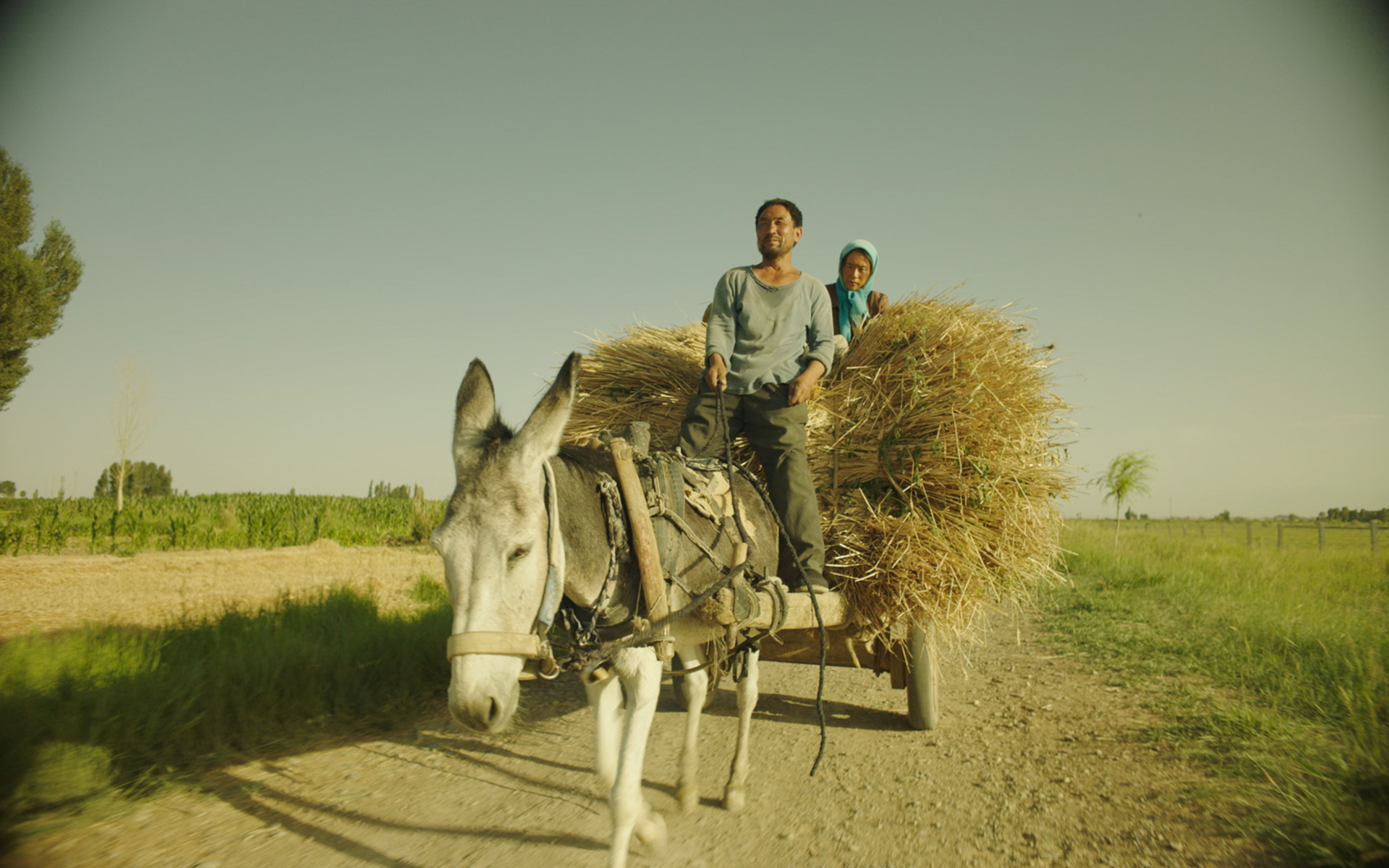
The story of the chained woman of Xuzhou revealed for many the dark side of urbanization and China’s gender imbalance. But a new film by Lǐ Ruìjùn 李睿珺 offers a different look at rural China, presented through the lens of love.
Return to Dust, which recently was accepted to the Berlin Film Festival, follows the couple Ma Youtie (played by Wǔ Rénlín 武仁林) and Cao Guiying (Hǎi Qīng 海清), who meet through an arranged marriage. They come to trust and respect one another, and build a life together in a decimated village. It’s a simple, straightforward story, but heartfelt.
Li, in his films, seems to devote the utmost care to depicting animals, land, dirt, even seeds of wheat — giving inanimate objects personality. The result is a poetic rendering of rural life.
“Unlike people, the dirt is unforgiving and all-inclusive,” he told me. We sat in the office of his production company for this interview, with Li wearing a winter jacket and sipping on a large Starbucks coffee. “The city is divided into blocks, people are confined to their spaces, but when I am standing on the ground back home, I can feel that Mother Earth is all-encompassing.”
In Return to Dust, there’s a scene in which Youtie stands awkwardly in front of an apartment and asks, “Where do we put our donkey, chicken, and pig?” Those gathered laugh at his question, but Youtie is serious. To a farm couple, animals are their life.
“The protagonists in the film are like the crops, they are the children of earth,” Li said. “They are able to achieve greater freedom through communicating with the earth, such as through farming. ”
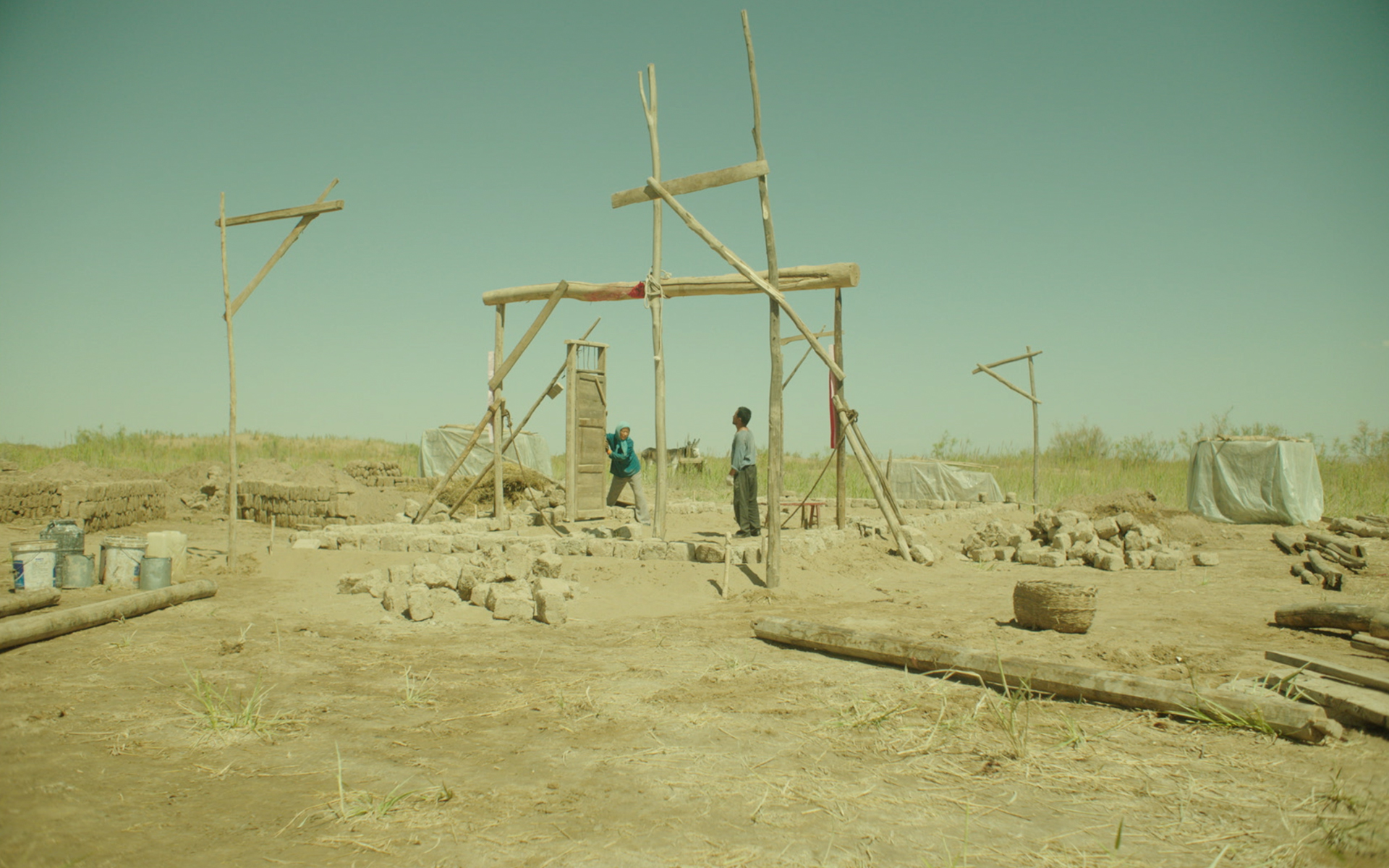
The land is an important supporting character, and therefore captures a lot of screen time. “This is to make audiences reflect on how important Mother Earth is to the farmers,” Li said. It was not easy to shoot: the team could only film specific scenes during specific seasons — they needed all four seasons, too. They rented land and hired farmers to plant only wheat and corn, nothing else. They calculated details down to the height of the wheat.
In the film, as crops begin to grow, so too does Youtie and Guiying’s relationship begin to mature. In one scene, Youtie places wheat seeks in Guiying’s palm in the shape of a flower and says, “See, now I can find you whenever.”
Some may criticize the relationship as overly idyllic, but the director disagrees. “Love can be interpreted in different ways. In my film, it’s about action. They do things to show their care for one another, which may be very different from a modern definition of romantic love.”
The China Project: Why did you choose to depict a love story in rural China?
Li Ruijun: In a city, before two people date, they look at the material foundations, like house, car, and then decide on whether to love or not. But in this story, both characters live in such poverty, they have nothing, so we’d like to imagine their love is at its purest. It’s natural, like looking down at a crystal-clear pond to observe the current — occasionally you can spot a twig and follow where it goes.
In this story, the idea of love is revealed through actions. The woman senses the man might be cold, so she waits for him with a bottle of hot water. The man sees people laugh at the woman wetting herself, so he buys her a long jacket to cover up. This might be the primordial way animals expressed love. If you see two birds cuddling up, the emotion of care and love transcends, even though you don’t understand their chirps.
The China Project: There is no scene suggestive of sex. Was this deliberate on your part?
Li Ruijun: It’s funny you ask this, the actress who played the female character, Hai Qing, asked me one day at the dinner table, a bit tipsy, “How come you didn’t write any sex or physically intimate scene? Is it because you thought I couldn’t act it out?” The answer is no.
Out of respect for the characters in the film, I wanted to create a private world exclusive to themselves. Their physical limitations are always the talk of the town, so it’s important to leave them some privacy. When they wash each other’s body in the river, or lay next to each other chatting, that’s intimacy. And perhaps in those moments, there is a sense of attraction to their natural beauty, and that’s enough.
The China Project: You have always used non-professional actors in your films. The male protagonist is your uncle, right? What was it like working with him?
Li Ruijun: Yes, my uncle took off this morning by airplane and was in a hurry to get back to take care of his farm. In the Q&A session earlier, I’ve never seen him that nervous, he stuttered quite a bit in front of hundreds in the audience. He must not have been used to the big screen. Getting direct feedback from the audience must have made it suddenly too real. After all, he identifies as a farmer, first and foremost.
He was nervous when I told him he might play the protagonist. He took it quite seriously because he understands how much money and investment is involved. After taking the role, he changed his schedule, from drinking out late until 2 or 3 a.m. with friends to just sitting on the sofa and studying the script, alone. The main character is not based on him, so my uncle has to do everything more deliberately than he does in real life, speak softer and learn to keep a quiet demeanor.
Youtie resembles a type of person that’s common in villages: they are nobody and almost invisible. It’s not that they are dumb or deaf, they’d just rather be quiet and observe instead of engaging in conversations. With this film, I wanted to explore their inner world deeper.
The China Project: Your films often spotlight problems in rural China, like the urbanization of villages, left-behind elders and children. Was it hard to achieve a level of complexity and nuance?
Li Ruijun: The reality is, villages in China are shrinking, forcing farmers like Youtie to change their lifestyle, but it’s a necessary progression of modern society. When a society develops, some enjoy experiencing the advances and the new technology, some don’t. I think this is a common problem with urbanization in the world, and perhaps one can’t offer a black-and-white solution. Think about this: while most people can enjoy technology, how come people like Youtie can’t enjoy all the good things that come with modern civilization? With this film, I wish to record the progression and make it available for others to reflect upon.
